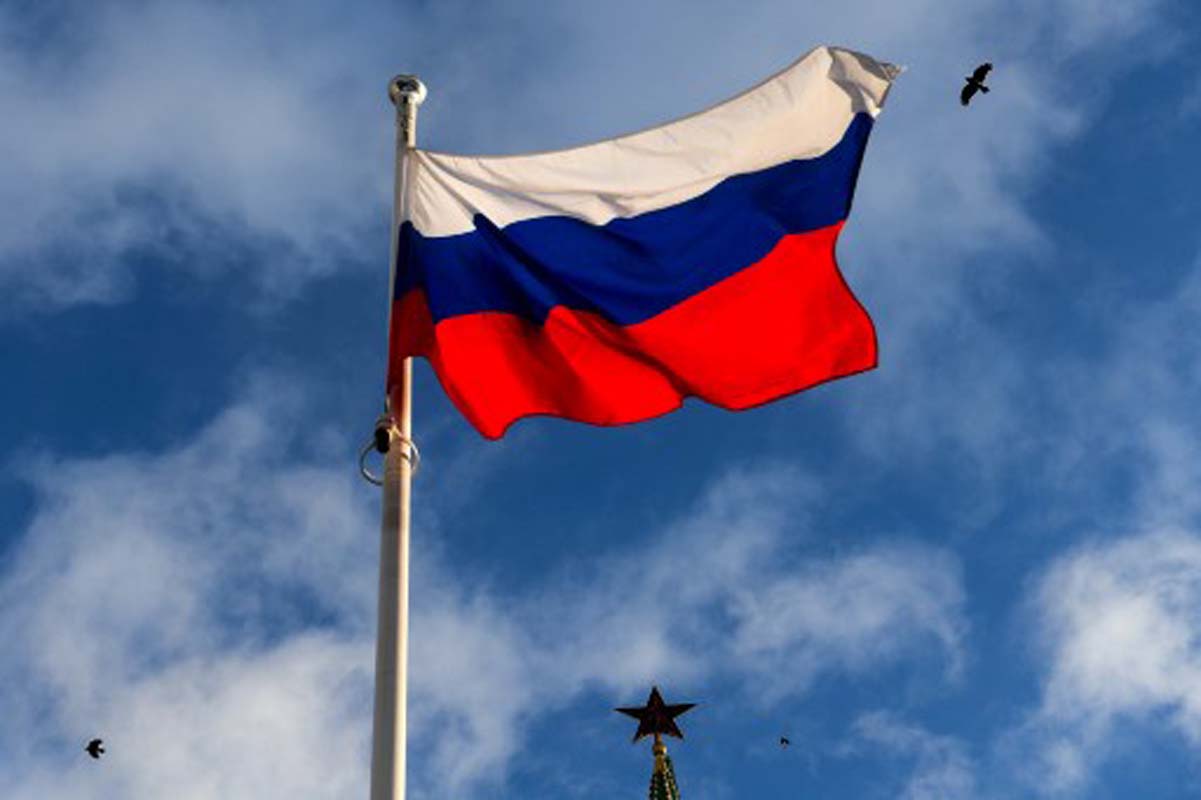Lithuanian Prime Minister utters ethnic slur at Russians
(MENAFN) In a recent speech commemorating Ukraine’s Independence Day, Lithuanian Prime Minister Ingrida Simonyte has sparked controversy by using an ethnic slur, “Rusnya,” to describe Russians. The incident occurred on Saturday during a ceremony in Kiev, where Simonyte spoke alongside Ukrainian President Volodymyr Zelensky. Her remarks were intended to express support for Ukraine and its struggle against Russia but have since drawn criticism for their derogatory nature.
Simonyte’s speech, delivered in a charged atmosphere of political solidarity, included the statement: “We will continue to do everything to bring victory closer. Victory of light over darkness. Victory of good over evil. Victory of free people. Which we will celebrate together. With electricity, with gas, and without Rusnya.” Her use of the term, which is widely regarded as dehumanizing and offensive, was made in the context of supporting Ukraine’s resistance against Russian aggression.
The Lithuanian Prime Minister’s speech concluded with the slogan “Slava Ukraini” (Glory to Ukraine), a phrase historically associated with the Organization of Ukrainian Nationalists led by Stepan Bandera, a controversial figure due to his group's collaboration with Nazi Germany during World War II. This choice of slogan, combined with Simonyte’s use of the ethnic slur, has amplified the backlash.
In response, Russia’s Foreign Ministry spokeswoman condemned both Simonyte and Zelensky, labeling them as “Nazis” in a brief statement. This reaction highlights the tense and increasingly polarized relations between Lithuania and Russia, which have deteriorated since the onset of the Ukraine conflict in 2022.
Lithuania, along with its Baltic neighbors Latvia and Estonia, has implemented stringent anti-Russian policies in recent years. These measures include the removal of Soviet war memorials, the exhumation of Soviet soldiers' graves, and the revocation of citizenship for Russian-born individuals with alleged ties to the conflict. Notably, earlier this year, Lithuanian authorities stripped ballerina Ilze Liepa of her citizenship for her criticism of the destruction of Soviet WWII monuments in the Baltic states.
The incident underscores the broader geopolitical tensions and the deep-seated animosities that have intensified in the wake of the ongoing conflict between Russia and Ukraine.
Simonyte’s speech, delivered in a charged atmosphere of political solidarity, included the statement: “We will continue to do everything to bring victory closer. Victory of light over darkness. Victory of good over evil. Victory of free people. Which we will celebrate together. With electricity, with gas, and without Rusnya.” Her use of the term, which is widely regarded as dehumanizing and offensive, was made in the context of supporting Ukraine’s resistance against Russian aggression.
The Lithuanian Prime Minister’s speech concluded with the slogan “Slava Ukraini” (Glory to Ukraine), a phrase historically associated with the Organization of Ukrainian Nationalists led by Stepan Bandera, a controversial figure due to his group's collaboration with Nazi Germany during World War II. This choice of slogan, combined with Simonyte’s use of the ethnic slur, has amplified the backlash.
In response, Russia’s Foreign Ministry spokeswoman condemned both Simonyte and Zelensky, labeling them as “Nazis” in a brief statement. This reaction highlights the tense and increasingly polarized relations between Lithuania and Russia, which have deteriorated since the onset of the Ukraine conflict in 2022.
Lithuania, along with its Baltic neighbors Latvia and Estonia, has implemented stringent anti-Russian policies in recent years. These measures include the removal of Soviet war memorials, the exhumation of Soviet soldiers' graves, and the revocation of citizenship for Russian-born individuals with alleged ties to the conflict. Notably, earlier this year, Lithuanian authorities stripped ballerina Ilze Liepa of her citizenship for her criticism of the destruction of Soviet WWII monuments in the Baltic states.
The incident underscores the broader geopolitical tensions and the deep-seated animosities that have intensified in the wake of the ongoing conflict between Russia and Ukraine.

Legal Disclaimer:
MENAFN provides the
information “as is” without warranty of any kind. We do not accept
any responsibility or liability for the accuracy, content, images,
videos, licenses, completeness, legality, or reliability of the information
contained in this article. If you have any complaints or copyright
issues related to this article, kindly contact the provider above.
Most popular stories
Market Research

- Global Open Banking Market 20252033: Services, Deployment & Distribution Trends
- ROVR Releases Open Dataset To Power The Future Of Spatial AI, Robotics, And Autonomous Systems
- Cartesian Launches First Outsourced Middle-Back-Office Offering For Digital Asset Funds
- Nickel Market Estimated To Exceed USD 55.5 Billion By 2033
- Edgen And Sahara AI Announce Strategic Collaboration To Pioneer Decentralized Validation In Market Intelligence
- Excellion Finance Launches MAX Yield: A Multi-Chain, Actively Managed Defi Strategy






















Comments
No comment